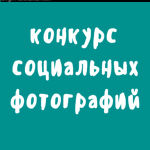The European Union and Kazakhstan: Cooperation on the threshold of the third millennium
This Interview for our magazine has been given by the Ambassador European Union, Head of Delegation of the European Commission in Kazakhstan Michael B. Humphreys
Dear Mr. Humphreys, could you tell our readers about the major fields of political and economic co-operation between the European Union and Kazakhstan?
The European Commission established its representation in Kazakhstan in 1994. In 1995, the EU and Kazakhstan signed the Partnership and Co-operation Agreement (PCA) which finally entered into force in July 1999.
The Partnership and Co-operation Agreement is both the political framework of the relationship between European Union and Kazakhstan and the instrument for an evolutionary political and economic co-operation. It aims at supporting the consolidation of democratic institutions in Kazakhstan and fostering the integration of Kazakhstan into the world economy.
The Agreement provides for a political and economic dialogue between European Union and Kazakhstan. This dialogue enables both sides to deepen relations, keep an overview on the progress of various issues and serves as an early warning component for upcoming trade, economic and political problems. The Agreement broadens economic co-operation in the areas of industry, cross border supply of services. The EU supports the transformation of Kazakhstan into a market economy based on democratic principles and the rule of law, integrated in the regional and international community and politically and economically stable. In this regard, the PCA provides for a framework to further develop economic and political co-operation between both parties, either in bilateral terms or through EU’s technical assistance, Tacis.
EU as a whole is the second trade partner of Kazakhstan after Russia. Therefore, the EU attaches great importance to the development of its trade terms with Kazakhstan in a context of free market economy. In this regard, the EU fully supports Kazakhstan’s efforts towards a near accession to WTO.
Given the geographical location of Kazakhstan, the nature of its neighbours, its natural resources and the composition of its population, the EU is committed to support the preservation of stability, either ethnic or economic at both internal and regional level. In this regard, EU’s actions in Kazakhstan need to be looked at also from a regional perspective. The EU supports sound relations with Russia, China and neighbouring Central Asian countries as essential. Besides preservation of environment, development of communications and transportation infrastructures are also key areas to assist landlocked Kazakhstan in achieving a critical level of development that ensures stability.
What are the main principles of the trade between the EU and Kazakhstan?
In accordance with the Partnership and Cooperation Agreement Kazakhstan and the European Union provide each other with the most favoured nation treatment in most spheres of the trade. Although there are some individual exceptions from common treatment made in sectors including the agriculture and steel industries, in general the goods from Kazakhstan can be exported without any restrictions.
As for the questions concerning the quotas for Kazakhstan steel it is necessary to underline that the EU follows the principle of reasonable competition on the European market for all suppliers from various countries of the world. For example, the EU has to ensure steel production in Kazakhstan meets all the requirements concerning protection of environment. Otherwise the European and Kazakhstan producers will turn out to be under unequal conditions as regard to their production costs.
Following the First Co-operation Council EU-Kazakhstan held in July 1999 and the Co-operation Committee held in November 1999, in December the EU and Kazakhstan signed the Steel Agreement that entered into force in January 2000. Also in December 1999 a Textile Agreement, initialed in Brussels in October 1993, was extended for another period of three years.
Since 1993 the EU applies anti-dumping duties on import of ferro-sillicum from Kazakhstan and Russia. A review regarding the possible cancellation of those duties has recently finished. At present this issue is being discussed by the EU Council and a final decision should be taken before the end of this year. At the same time it should be noted that anti-dumping duties on ferro-chromium were canceled by the EU in March 2000.
In October 2000 the European Council made amendments to its regulations on anti-dumping aimed at extension of the special “market economy” regime for Kazakhstan. Anti-dumping investigations will now be based on the situation, existing in Kazakhstan and will not be linked with the situation in a third market economy country. The criteria of “individual approach” was revised as well. The new regime will allow the producers and exporters to prove in each specific case that their production expenditures and prices are not state influenced and therefore the “normal cost” is calculated on the basis of the real manufacturing expenditures and costs. In case where the proofs are absent the “normal cost” is calculated on the basis of the expenditures and costs existing in the other comparative third market economy country. The new regulation became effective as of October 12th 2000.
Despite these achievements there are still some trade-related issues to be solved between the EU and Kazakhstan. There are restrictive measures on market access of Kazakhstan caviar and other fish products to the EU markets. Nevertheless, those measures are mostly of technical character. They are related to the sanitary and hygienic standards of the EU imposed towards imported food products, because the sanitary/hygienic standards of the EU and Kazakhstan differ. Of course, all the Europeans want to see more fish and caviar from Kazakhstan at their markets, but there is another aspect regarding the environment of Caspian Sea. This issue needs to be tackled on a cooperative basis by the Caspian littoral states.
However, the EU is ready to purchase the agricultural production for delivery as humanitarian aid to third countries located in this region and facing great difficulties. For practical reasons this has not yet been been fully operational.
For the future development of trade between Kazakhstan and the European Union we are looking forward to the accession by Kazakhstan to the World Trade Organisation. The economic cooperation in the modern age dictates new relations to the world which are based on the universal standards of international trade, fixed by corresponding multilateral agreements. Many of the issues on trade covered by the PCA are equivalent to the trading provisions in the relevant articles of the WTO. Kazakhstan is expected to become a member of the WTO. To a certain extent the PCA helps to prepare Kazakhstan for its future commitments as a WTO member.
European experts note that Kazakhstan requires the improvement of its investment climate. What, in your opinion, needs to be done to create more favourable investing conditions in our country?
In accordance with the Partnership and Cooperation Agreement between the European Union and Kazakhstan, European businessmen and companies in general benefit from similar conditions to those granted to local and other foreign investors. Moreover, there are specific regulations on cooperation within the frameworks of PCA in the sphere of legislation, free movement of direct investments and realisation of payments for goods and services in hard currency. It is evident, that the regulations of the PCA facilitate the decrease of risks and improvement of conditions to do business.
Unfortunately, there are some unsolved problems in Kazakhstan. It is not a secret that foreign investors encounter violations of the contractual terms and obligations. The judicial system in Kazakhstan is weak and the courts at present do not provide a satisfactory basis for the transparent and equitable resolution of commercial disputes. Action is needed to improve the efficiency and transparency of the judicial system. In addition to actions through local courts, contractual disputes can also be settled by arbitrate. The PCA encourages the usage of arbitration with reference to the arbitration rules developed by UNCITRAL and arbitration through the New York based Convention on the Recognition and Enforcement of Foreign Arbitral awards. Kazakhstan’s recent accession to this convention is very welcome.
Problems encountered by foreign investors are particularly onerous for small and medium sized investors. The large investors and major international companies can deal with their problems at a central government level and using high level political contacts. However the small investor does not have this access. For the small and medium investor to succeed a clear and transparent business environment is necessary with an effective judicial system, clear legislation and objective implementation of tax and customs regulations. Long term economic development which benefits the general population depends upon the establishment and success of small and medium scale enterprises - from both local and foreign investors.
The problem with hiring of foreign personnel for joint ventures is still unclear and open. In accordance with the regulations of the PCA, foreign companies in Kazakhstan have a right to employ key personnel required for the efficient operations of their companies. However the Kazakhstan Government has a legitimate concern and policy to encourage and promote the employment of Kazakhstan nationals. This policy has led to proposals for the imposition of a strict quota for foreign nationals employed in Kazakhstan. These potentially conflicting priorities need to be resolved by discussion and cooperation between all sides. I am pleased to note that the Government is open to such discussions and trust that they will reach conclusions acceptable to all parties.
Why American oil companies pay more interest to development of oil and gas sector of Kazakhstan a than European companies?
It is true that in the early years of independence, the US based international oil companies were the major foreign investors in Kazakhstan. However recent developments in the oil sector - the Caspian Sea exploration and Karachaganak - have shown an increasing and in fact majority interest by the European based international oil companies.
It is known that the EU has its own position concerning the construction of the oil pipeline Kazakhstan-Iran. What do you think on perspectives of this project?
Decisions regarding construction of pipelines should be based primarily on financial and commercial reasons taking into account appropriate environmental and political considerations. The European Union supports the development of multiple pipelines which give Kazakhstan secure, varied and viable outlets to the international markets.
Table of contents
The Foreign Investors Council is a model of co-operation between young democracy and transnational companies Askar Yelemessov
Kazakhstan Investment Policy: Time to Change Priorities Dulat Kuanyshev
The Association of Investors of Kazakhstan: Our might is in unity, and the path to success lies in our solidarity! Serik Tulbasov
Fundamentals of the Legal Regulation of Production Sharing Agreements in the Russian Federation Sergei Gudkov
Production Sharing Agreements: The Legal Aspects Aigoul Kenjebayeva










